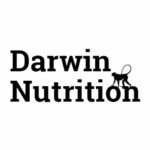Comme J’aime offers hypocaloric programs with ready-to-eat meals, delivered in a package every 28 days, covering breakfasts, lunches, snacks (depending on the plan) and dinners.
The menus are standardized, designed to stay within a range of approximately 1,350 to 1,550 kcal/day depending on the product line.
The official sales pitch emphasizes “balanced” recipes, a Nutri-Score claimed to be favorable across the meal range, and the removal of “empty calories”. However, customers are still asked to add certain items (fruits, dairy products…) not included in the packages.
Regarding support, the brand highlights “weight-loss advisers”.
We analyzed the method, the nutritional composition of the meals, the caloric intake, the coaching, the cancellation conditions and recent customer feedback. Verdict: effective in the short term for those who want to outsource their meals, but significant limitations regarding food education, cost and the sustainability of the results.
📚 Also read | A dietitian decoded the best weight-loss programs sold online
Summary of the review
- Who is it for? Busy people, ready to delegate their meals for a few weeks, aiming for a rapid, structured initial weight loss
- What we like: very simple daily implementation, consistent calorie control, overall acceptable nutritional quality of the meals analyzed, interesting logistics
- What we like less: high overall cost once fresh groceries are added, limited food education, risk of weight regain if the transition isn’t supported, and cancellation terms that must be well understood.
- Our average rating 2025: 6.5/10.
Pros and cons
Advantages
- Immediate start: 28 days delivered at once, eliminates grocery shopping and cooking.
- Calorie control (≈ 1,350–1,550 kcal/day) facilitating initial weight loss.
- Commercially prepared meals generally acceptable according to numerous product sheets (moderate energy, salt controlled in some items, favorable Nutri-Score shown for the prepared meal range).
- Follow-up with a consultant (motivation, guidance).
Disadvantages
- Cost: 4-week subscription + fresh purchases to add (fruits, dairy not provided).
- Sustainability: a “turnkey” diet that doesn’t always teach meal planning/cooking, hence a risk of weight regain if exiting the program is not supported.
- Satisfaction varies according to public feedback (very positive testimonials and more mixed reviews).
Overview of Comme J’aime
The principle: a low-calorie program delivered to your home. Depending on the plan, you receive 3 or 4 meals/day, with portioned menus and snacks in some packages. Fresh products still need to be purchased (fruits, dairy), and the company reminds of the contraindications (pregnancy, breastfeeding).
The nutritional promise emphasizes dishes made in France, French meats, no added colorings/preservatives, and promotes a Nutri-Score A for the prepared-meal range. Snacks/powders present varied profiles. Some items may be salty/sweet (to be assessed case by case).
Energy calibration: the brand places its days around 1,350–1,550 kcal (depending on the plan), aligned with a moderate restriction.
Detailed review by criteria with scores out of 10
Average rating 2025: 6.5/10 (average of 10 equally weighted criteria)
1. Nutritional quality of the meals 7.5/10
The product sheets found (e.g., hachis parmentier 300 g: 0.5 g salt/100 g; vegetarian plates with low energy density) and the “Nutri-Score A” messaging on the prepared meals argue for a decent quality, with reasonable energy density and often controlled salt profiles.
This remains portioned ultra-processed: not everything is equivalent to homemade cooking rich in fibre and fresh vegetables, but overall it is consistent with a low-calorie diet.
2. Weight loss effectiveness (short term) 7/10
Strict control of portions and calories generally allows an initial weight loss if adherence is good. However, this is a standard energy-deficit effect; it is not a “miracle method”.
3. Durability / stabilization (medium-long term) 5/10
The recurring weak point: the transferability of habits once the box is stopped. Testimonials and analyses highlight relapses if the program exit is not structured (reintroduction of foods, portions, cooking). To improve this score, a proper nutrition education module and a robust transition protocol would be needed.
4. Satiety / dietary comfort 6.5/10
Portions are calculated to remain filling within the targeted calorie range. Compositions vary: some dishes are rich in complex carbohydrates, others are higher in protein. Snacks help even out hunger.
Satiety remains individual. You should plan for additional vegetables/fiber as part of the “recommended fresh products”.
5. Logistical simplicity / practicality 9/10
Major advantage: no cooking, menus provided for 28 days, reheating in a few minutes. Ideal for busy periods.
6. Coaching / support 6.5/10
The presence of a “weight-loss advisor” is a motivational plus, but it is not an in-depth personalized dietary follow-up (long consultations, fine adaptation to medical conditions, etc.).
7. Ingredients / product transparency 7/10
Made in France, French meats, and a commitment against unwanted additives: reassuring. But there is variability between items (e.g., instant soups with salt levels to watch); you should read each label. The Nutri-Score A applies to the range of prepared meals, not necessarily to all snacks/products.
8. Price / value 5.5/10
The upfront cost for 4 weeks is substantial, and you should factor in the purchase of fresh products not supplied. Perceived value will depend on your available time and the groceries/restaurant savings it replaces. We recommend calculating a per-day cost, all-inclusive (box + fruits/dairy).
9. Ethics / commercial transparency 4.5/10
A 2019 conviction for deceptive commercial practices and the regulator’s reminder about the readability of notices still weigh on this criterion. The brand has adjusted its communications since then. Hence the importance of reading the Terms and Conditions and the withdrawal/cancellation policy before subscribing.
10. Customer satisfaction 6.5/10
The 2025 reviews show excellent results reported by some users and more mixed experiences for others (taste, consistency, costs, deliveries/cancellations). Review platforms are not scientific evidence, but they inform the perceived experience.
Frequently asked questions (FAQ)
How many calories per day?
According to official documentation, the programs target about 1,350 to 1,550 kcal/day, depending on the plan. This range is suitable for many sedentary adults to initiate a deficit, but may be too low for some profiles (larger body size, high physical activity). A health professional’s opinion is recommended if you have a medical condition.
Do the meal boxes really cover 100% of my dietary needs?
No. You must add fresh products (fruits, dairy, etc.) as instructed; they are not provided. Budget for this expense in your calculations.
Is the nutritional quality good?
Overall acceptable for a low-calorie diet, with prepared meals labeled Nutri-Score A and reasonable salt levels on several products. But not everything is consistent: check each label (especially soups/instant products).
How do I cancel or withdraw?
Read the Terms and Conditions. You have a legal 14-day right of withdrawal after receipt of the first package, with a refund within a maximum of 14 days after receipt of the return or proof of shipment. If you subscribed to a one-week plan, it does not automatically renew. For plans longer than that, after the minimum commitment period, the contract renews automatically and you can terminate it by giving 5 business days’ notice before the next shipment. For any cancellation or withdrawal request, it is strongly recommended to send a registered letter with acknowledgment of receipt to document the date.
Is it suitable for vegetarians/special diets?
The shop and menus display various items, including vegetarian dishes. In case of allergies or specific constraints, the brand invites you to contact an advisor in advance. For medical needs (diabetes, kidney failure, etc.), medical advice is essential.
Verdict from Darwin Nutrition
The Comme J’aime program removes the mental burden of shopping, cooking, and portion calculation and effortlessly introduces you into a structured energy restriction, with meals that are mostly nutritionally adequate.
In the short term, it’s relevant for triggering weight loss. In the medium/long term, success will depend entirely on the transition: relearning how to compose plates, cook, and become autonomous in your choices.
- If you’re looking for a turnkey service for a few weeks: it’s a good option.
- If your goal is to change your habits for the long term: combine this type of program with personalized dietary support, an exit plan, and work on physical activity.
Average rating 2025: 6.5/10.



